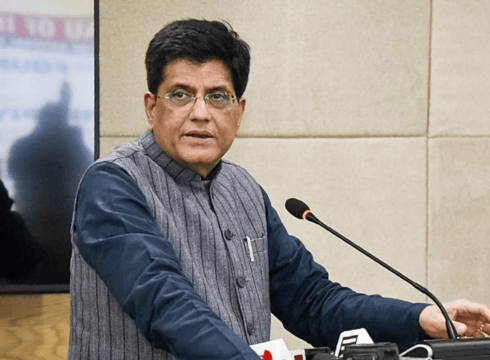The discussions focused on the fallback liability and consumer grievance redressal, along with issues related to private labels and inventory models
The government has taken a lot of input from ecommerce companies, which has led the industry to believe that the upcoming policy will be holistic
The government also nudged ecommerce platforms to integrate their operations with ONDC, the government’s flagship digital commerce protocol
Inc42 Daily Brief
Stay Ahead With Daily News & Analysis on India’s Tech & Startup Economy
Following a meeting with top industry executives on Tuesday (August 1), the government is likely to introduce the draft ecommerce policy in the next week or two.
The government has taken a lot of input from ecommerce companies, which has led the industry to believe that the upcoming policy will be holistic.
The discussions focused on the fallback liability and consumer grievance redressal, along with issues related to private labels and inventory models. Earlier, it was reported that the Centre sought data on private-label products sold on online platforms to see if companies were pushing in-house brands over other products.
Flipkart Group CEO Kalyan Krishnamurthy, Amazon India vice president and country manager Manish Tiwary and Tata Digital CEO Pratik Pal were present at the meeting, alongside senior executives from Shiprocket, Reliance Retail, Swiggy and Meesho, among others.
Secretaries of the Department for Promotion of Industry and Internal Trade (DPIIT) Rajesh Kumar Singh and the Department of Consumer Affairs Rohit Kumar Singh were also said to be present at the meeting.
While the DPIIT is finalising the ecommerce policy, the consumer affairs department is separately working on formulating ecommerce regulations under the Consumer Protection Act. Aligning the draft ecommerce policy with consumer protection rules was also discussed during the meeting, the report added.
The government has differentiated between the two models of online marketplaces and inventory-based businesses. While the government has notified that ecommerce platforms can’t own entities selling products on their platforms, ecommerce companies present at the meeting have highlighted the job creation potential of private labels.
Today, most of the marketplaces house series of in-house brands. The likes of Amazon India, Flipkart, Myntra and Nykaa have all introduced private labels over the years. For instance, Myntra has more than 20 in-house brands, including Roadster, HRX and Mast and Harbour.
Nykaa, on the other hand, has its private labels currently accounting for 12.5% of consolidated GMV for Nykaa Fashion.
Alongside the continued exploration of private labels and inventory-based models, the government also nudged ecommerce platforms to integrate their operations with the Open Network for Digital Commerce (ONDC), the government’s flagship digital commerce protocol.
The ecommerce policy has been a work in progress since 2018. The government plans to integrate all the rules and regulations which apply to ecommerce platforms into one overarching regulatory framework. These include the Consumer Protection Act, the foreign direct investment policy issued by the DPIIT, the Competition Act and the under-development Digital India Act.
{{#name}}{{name}}{{/name}}{{^name}}-{{/name}}
{{#description}}{{description}}...{{/description}}{{^description}}-{{/description}}
Note: We at Inc42 take our ethics very seriously. More information about it can be found here.


